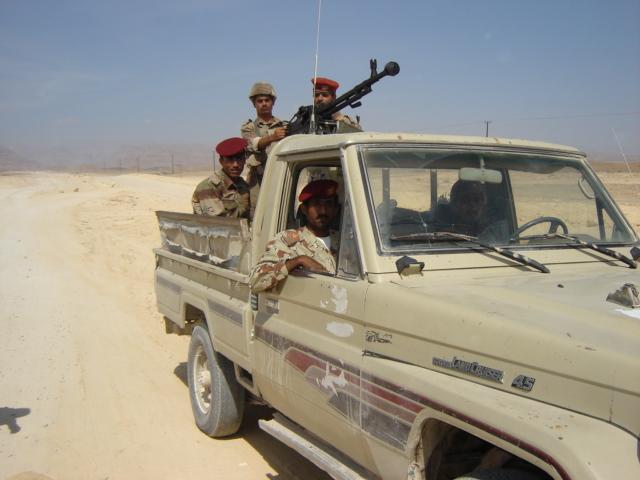There is a risk of renewed fighting between government forces and Shia rebels in the northern province of Saada, which would worsen the already deteriorated humanitarian situation there, analysts have warned.
Although a Qatari-brokered peace agreement was signed by the two sides in February, ending an intermittent armed conflict which broke out in 2004, tension has risen recently as the government and the rebels accuse each other of not implementing some aspects of the deal.
Fueling the tension was the murder on 18 April of a prominent Saada MP along with his son and one of his guards. It is unknown who the assailants were.
The peace agreement consists of 14 points, which were made public late March by the government although it had been agreed they would be kept confidential.
Abdu al-Janadi, rapporteur for the presidential committee overseeing the implementation of the peace agreement, said the rebels, followers of Abdul Malik al-Houthi, have not implemented the agreement's item seven, which stipulates that the government would impose its authority on areas dominated by al-Houthi.
"The rebels do not want to leave some of the areas they have been dominating, such as Azzan mountain [which overlooks Saada airport], Matrah and Naqaah. They have not shown their readiness to implement the agreement," he told IRIN.
Rebel leaders, on their part, have accused the government of undermining the peace agreement by not withdrawing their forces from certain areas, not releasing detainees or starting reconstruction – all points agreed to in the February deal.
"We have not reached item seven of the agreement. The government has not released all the detainees [item three of the agreement]," Sheikh Saleh Habrah, who represents al-Houthi in the peace agreement, told IRIN on 19 April. "We presented a list of about 500 detainees, but only 130 of them have been released."
But al-Janadi said the release of the rest of the detainees rests on the rebels implementing item seven. "The rest are still detained as Houthis [rebels] have not withdrawn from their strongholds," he said, adding that a committee had been formed to assess and reconstruct war-affected areas but that it could not begin work until item seven was implemented.
According to Habrah, the army has not withdrawn from any area of Saada and there are still over 400 military checkpoints throughout the province. "I would be able to bring down Houthis from the mountains just by a phone call should the government withdraw its soldiers," he said.
Habrah added that the Qatari delegation charged with overseeing the implementation of the peace agreement it brokered had reached a stalemate and left Saada city for Sanaa, the capital, and were to leave the country on 22 April.
Humanitarian situation still poor
According to Habrah, the humanitarian situation remains poor in Saada with many displaced families still not able to return home. He said over 5,000 houses had been destroyed and anti-personnel landmines were prevalent in Khawlan Bani Amer, Marran and Haidan districts.
He added that there is a shortage in food supplies resulting in a huge price hike. "A sack of wheat costs 25,000 riyals [US$125], while it costs 7,500 riyals [$37] in other parts of the country.”
maj/ar/ed
This article was produced by IRIN News while it was part of the United Nations Office for the Coordination of Humanitarian Affairs. Please send queries on copyright or liability to the UN. For more information: https://shop.un.org/rights-permissions




